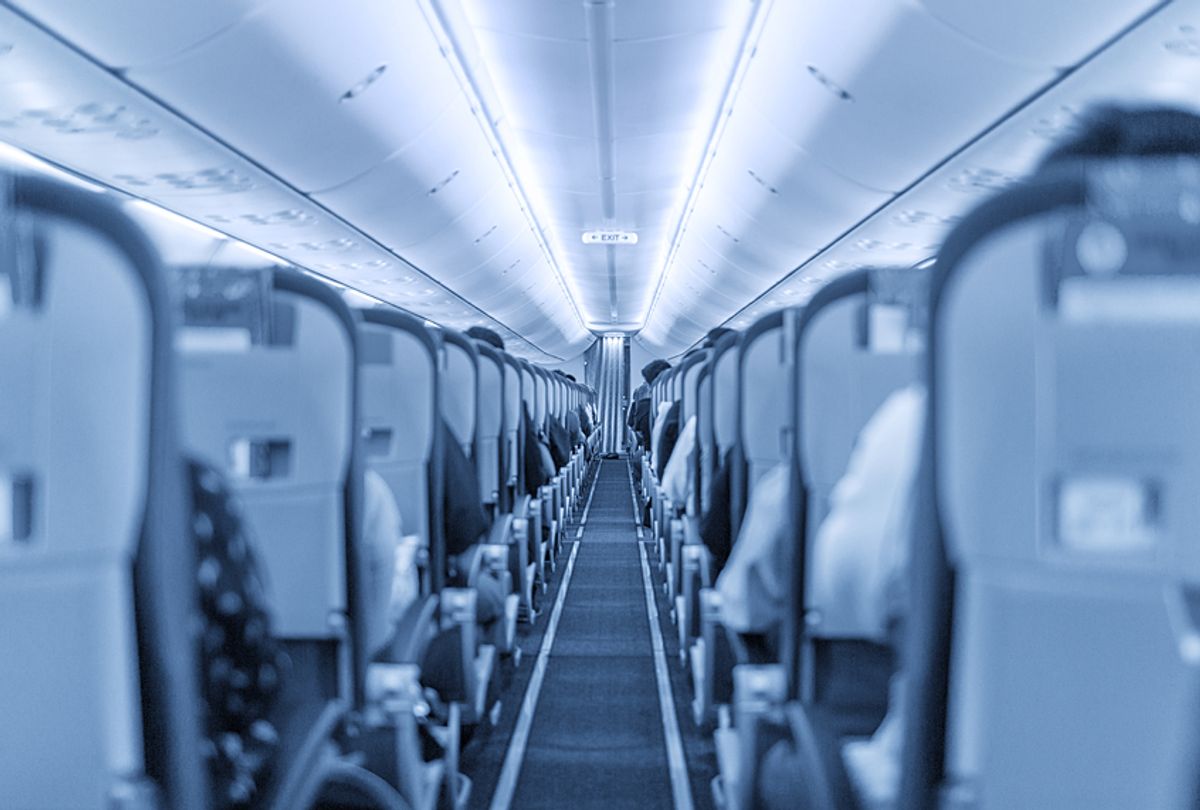An Alaska Airlines pilot says that sexual assault — including her own experience — is "swept under the rug" in her industry. An American Airlines passenger says she was raped during a flight — and that the airline shrugged off her case as a "nuisance claim." These stories are just from this week.
Where's the #MeToo reckoning for the airline industry?
On Friday, Alaska Air Pilot Betty Pina spoke on "Good Morning America" about what she alleges her captain did to her last June during a layover in Minneapolis. In her suit filed on Wednesday, Pina claimed that when the crew was staying in a local hotel to catch up on rest, the man gave her a glass of wine that "tasted funny." After that, she said, "I don’t remember leaving the concierge room, the elevator ride or walking down the hallway to my room. When I woke up, everything was hazy. I remember seeing a figure, somebody pulling at my right ankle, and rolling over and trying to say, ‘No.’ And then, I was out again." She said she woke up half-dressed and surrounded by vomit, with the man in the room.
In her complaint, she says the captain denied sexual contact but told her, "You were coming on to me pretty hard." Two days later, she reported the incident to the Air Line Pilots Association, though she says he's still on the airline's "active seniority list" for pilots.
"I believe that this is an under-reported, swept-under-the-rug, not-dealt-with issue in our industry," she told ABC News, adding, "It's not just our airline." And apparently it's not just staff, either. Colorado real estate associate Aubrey Lane told the Dallas Morning News this week that during a June American Airlines flight, she was raped in a bathroom by a drunken passenger. When she alerted the crew, she was moved to the back of the plane and greeted by investigators and taken to the hospital when it landed. The alleged assailant, however, was not picked up. And in December, she received a letter from the airline regarding her "nuisance claim," along with an offer of $5000. "I would like to see some sort of human response," she said. "I would like them to acknowledge this is a problem."
The Dallas Morning News also reported that "A 2017 survey by the Association of Flight Attendants CWA of nearly 2,000 members found that 1 in 5 had received a report of passenger-on-passenger sexual assault while working a flight." It added that, alarmingly, "Most said they had no knowledge of written guidance or training on how to handle such reports, according to the union."
If that industry-wide lack of clearcut protocol is indeed the case, it may go a long way to explaining why these incidents seem to keep happening — and happening across a demoralizing number of different airlines. Last month, a Washington state woman, Allison Dvaladze, went public about a 2016 incident in which she says a fellow Delta passenger repeatedly grabbed her crotch and groped her. While she was able to move seats, she says the crew made her return to her original spot near her assailant for landing. It later gamely offered her 10,000 SkyMiles as a “small token in hopes of easing some of the frustration and inconvenience you may have felt.” Her suit said, "The airline did not have clear policies in place to deal with sexual assaults and did not adequately train its flight crews on how to respond to victims."
In January, a Spirit Airlines passenger claimed she woke up during a flight to discover her shirt and pants were unbuttoned and another passenger was in the midst of sexually assaulting her. In December, CNN reported on a number of women with similar stories, including a passenger who says she was harassed during a United flight. Despite her complaints to the crew, she said, "The man didn't stop touching her even after she moved." And last fall, Randi Zuckerberg detailed her own experience of having her complaints about a fellow passenger making "explicit, lewd, and highly offensive remarks" brushed off by her Alaska Airlines crew because he was a "frequent traveler."
Ask a woman you know today to tell you about being seated next to a creep on a plane. Because odds are, she's got a story.
The #MeToo and #TimesUp movements have brought harassment and sexual abuse in other spaces into sharp relief. But the murky in-between zone of air travel has been conspicuously late to the party. Added to the frustration for victims is that crimes in the air usually are treated as federal offenses, which can restrict local intervention. Depressingly, it's also an industry in which the women who work in it often bear the brunt of abuse and are left without the tools to protect themselves or their passengers. Speaking to CNN in December, United Airlines flight attendant and AFA union president Sara Nelson said it all when she acknowledged, "In my 22 years as a flight attendant, I have never taken part in a conversation — in training or otherwise — about how to handle sexual harassment or sexual assault."



Shares